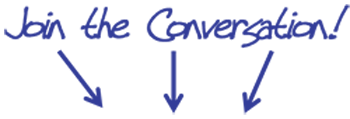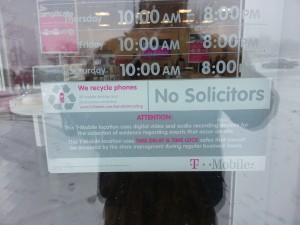Guest Column By Lee Thayer
Firing someone is often a distasteful, sometimes painful, act. It is the end of something. Hiring someone is usually full of hope and expectation. It can be exciting. It is the beginning of something.
Yet you don’t learn much when you hire someone. It often turns out to be not all you had hoped.
You could learn a great deal about yourself and about others from the process of firing someone, however.
If you can do a better job of firing, you could do a better job of hiring. The most direct way of learning how to do a better job of hiring lies in what you can learn from the process of firing.
Here’s why:
- Hope and wishful thinking clouds your perspectives when you are hiring someone. But when you fire someone, you are challenged to understand why.
- Firing can clear the lenses. It can be – ought to be – a very rational process. If you do it right, you are dealing with bedrock criteria, not wishful thinking.
- If you can figure out why and how and when to fire someone, it will clarify why you went wrong in the first place.
- If you did a perfect job of hiring people, you would have a perfect understanding of how to fire people. But most organizations haven’t done a better job of hiring people in spite of the tsunami of advice about how to do it.
- You have to come at it the other way around. There is no reliable recipe for doing a perfect job of hiring. You have to learn from your failures – as all leaders have had to do.
- It is figuring out who needs to be fired and why that provides the clarity needed to get better and better at hiring.
There are always the conventional reasons for firing someone: poor performance, redundancy, obsolescence, RIF, attitude, and myriad others. There are reasons. And then there are the real reasons.
It is these real reasons the chief executive needs to uncover. You have to plow through the verbiage and your own thinking to arrive at the real reasons. Was it a poor hire? Was it just a poor “fit”? Was it the culture of the organization that was at fault? Was it the attitude of the person’s peers? Was it the person’s boss? Could it even be you?
Done well, this kind of forensic exploration begins to illuminate better hiring practices by starting with reality rather than the jargon of the day.
To the person targeted for being fired, there is often no correlation between the reasons offered and that person’s assessment of his or her own performance. Big clue.
Here is the crunch issue:
The person being fired was probably not told at the time of hiring the specific reasons that might lead to dismissal.
Three mistakes were likely made:
- The person was probably provided with a list of activities to be performed. That’s the way conventional “job descriptions” are constructed. There may have been some past experience or credentials thrown in for the company to hedge its bets.
- It was likely nothing was said about what was to be accomplished. You can’t measure activities objectively. But you can measure accomplishments.
- The person was most likely hired for a “job.” He or she was not hired to a role in the organization’s future. It is the future that really matters, not the past. Past performance does not predict well to future performance.
Competence is difficult to measure. So most organizations measure what’s easy to measure – the financials. But, to use a provocative metaphor:
Financial performance can only be measured in the wake of the ship. It is where the ship is headed that matters most. And then it is how it is powered and steered to get there.
It is full competence in every role in the organization that seals its fate. If you hire for full competence to carry forward in a well-specified role, you won’t have to fire for incompetence.
A key ingredient of competence is being in the “learning mode.” The best evidence for being in the “learning mode” is that the person performs his or her role better today than they did yesterday. You fire for lack of that. Maybe you should hire for the presence of that.
And, if it isn’t necessary for the person to perform his or her role better, poor performance may not be the person’s fault. It may be your fault for not making continuous improvement in every role necessary.
What is necessary will likely happen. What is not necessary may not happen.
Every organization, like every person, arrives at a status quo – ways of doing things that take precedence over doing them right. Percy Barnevik of ABB fame considered the status quo to be the enemy. His suggestion? Kill it.
There are people who have one year’s experience repeated 20 times. They become deadwood. How frequently do you clear the deadwood? Ranchers cull their herdsat least annually, in order to get better breeding.
Jack Welch eliminated the bottom 10% of performers annually. That takes the uncertainty and pain out of firing.
Outstanding performers are disruptive of the status quo. They are therefore more likely than mediocre performers to get the axe. If the culture of your organization is a safe haven for mediocrity, you are not doing a good job of firing.
And if you aren’t, you can’t do a good job of hiring.
One of the hidden reasons for firing people is that they don’t seem able to learn from experience. They never seem to get consistently better at what they do. Lesson? Make that explicit.
The best CEOs are not in their role to do the job. They are there to learn how to perform their role better today than they did yesterday. They expect the same of others.
If that’s not why you are there, you should be fired. You are, after all, the exemplar.
The best time to fire someone is the day before you hire them. If you can do that, you will be doing a far, far better job of hiring.
The bonus is that firing the wrong people for all the right reasons makes room for hiring more of the right people for the right reasons. But you have to know clearly what those are.
This is why knowing the real reasons for firing people will help you to make better and better judgments about hiring. In other words, the best way to get better at hiring is to get better at firing.
For what good reasons would you fire yourself? If you really figure that out, you will do a far better job of hiring – including casting yourself in the right role.
=====
Lee Thayer has been a CEO coach and consultant for 45+ years and is known worldwide for his work “in the trenches” with executives to create high-performance organizations. Dr.Thayer has also held distinguished professorships in many of the major universities worldwide. His recent, acclaimed books include: Leadership: Thinking, Being, Doing; The Good Leader; Leaders and Leadership; Leadership Virtuosity; How Leaders Think; Explaining Things and The Competent Organization.






 Quick announcement for you - and a "mark your calendar"...
Quick announcement for you - and a "mark your calendar"...  You did not start your speaking, consulting or professional services firm because you woke up one day and said...
You did not start your speaking, consulting or professional services firm because you woke up one day and said... 

 I got a phone call a few days ago from my friend Steve who is a fellow independent professional. He said to me at the beginning of the call, "David, I'm calling you as a reference."
I got a phone call a few days ago from my friend Steve who is a fellow independent professional. He said to me at the beginning of the call, "David, I'm calling you as a reference." e leads, better prospects, and bigger sales?”
e leads, better prospects, and bigger sales?”  Even the best of us will sometimes run out of things to say.
Even the best of us will sometimes run out of things to say.
